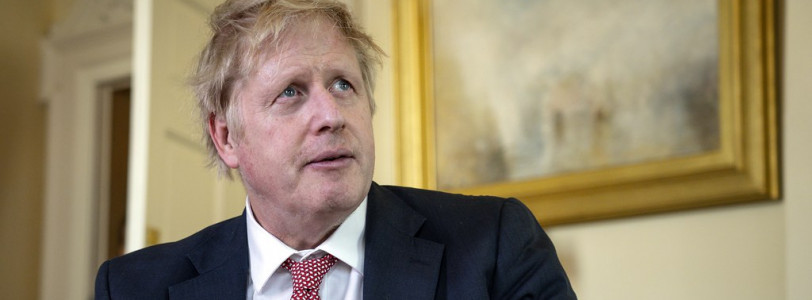Three young climate activists are taking Boris Johnson to court over his failings to effectively commit to tackling the climate crisis. They have accused him of neglecting his legal obligations to take “practical and effective measures” and of breaching their human rights.
Adetola Onamade, 24, Jerry Amokwandoh, 22, and Marina Tricks, 20 appeared at a high court hearing on Thursday and stated that the government was violating their rights under the Human Rights Act to life and to family life by refusing to take the measures necessary to halt the effects of climate change. They particularly drew attention to the government’s treatment of younger people, and of the residents of the global south, which they labelled as discrimination against those who will suffer from the worst effects of climate change.
The hearing was an application to request a full hearing for the case; a judge is set to respond with a decision in the next few days. They are being supported in their case by charity Plan B Earth. Environmental lawyer Tim Crosland who works with the charity told the court that the case was “compelling, vital and deserves a fair hearing”.
He labelled the government’s inaction over climate issues as justification for the case, saying: “The defendants know that climate change is an urgent threat to life. They know its impacts hit hardest for groups exposed to disproportionate and discriminatory risks, including the claimants. They know what needs to be done but they are not doing it.
“We have a credibility gap between words and action – that is at best neglect of the defendant’s most profound responsibilities and legal obligation for which this court should be ready to hold them to account.”
One of the claimants, Onamade, said: “When I see the government breaking its own commitments under international law, including the Paris agreement, and the duty to prevent harm, the impact on me is profound.”
She also brought focus to the privileges that many in the global north have in regards to the climate crisis, compared to those in the global south who are for the most part suffering the consequences of the global north’s actions (or inaction). “Those breaches are directly impacting my own family and heritage communities, which are an inextricable part of my own family life. My own mental health is bound up with the impact and experiences of my global family.
“People without that family may be able to blind themselves to what is happening in a way that is not possible when it’s your family or friends on the frontline or in these sacrificed zones, that have been engineered by the policies of countries such as the UK.”
The prime minister, the Treasury and the business secretary, Kwasi Kwarteng, were represented in court by Richard Honey QC who claimed that “The claimant’s case is essentially based on the potential that climate change will cause social and economic breakdown and that is … clearly a generalised and hypothetical future risk.
“It is, in my submission, not credible to argue that the UK government policies on climate change are directly affecting the lives of individuals in south London in 2021. Any risks are too remote for them to be victims today.”
However, it has been shown that the UK is not doing enough to tackle the climate crisis, and that this will – and already has – resulted in casualties and injustices. A report from the Climate Change Committee (CCC) earlier this year identified eight priority risks within the UK that the government must address “at the latest” in the next two years, and also noted that there had been over 4000 heat-related deaths in England alone since 2018. Two of the risks identified were: “Risks to people and the economy from climate-related failure of the power system” and “Risks to human health, wellbeing and productivity from increased exposure to heat in homes and other buildings”.
The report highlighted the government’s responsibility in addressing these risks, saying: “The Government has an important role. It must deliver a much better action plan to support good adaptation planning across the UK and integrate this into all relevant Government plans and policies. The Government has to date not heeded the CCC’s advice on the importance of this plan or on funding it adequately. This needs to change.”









0 Comments